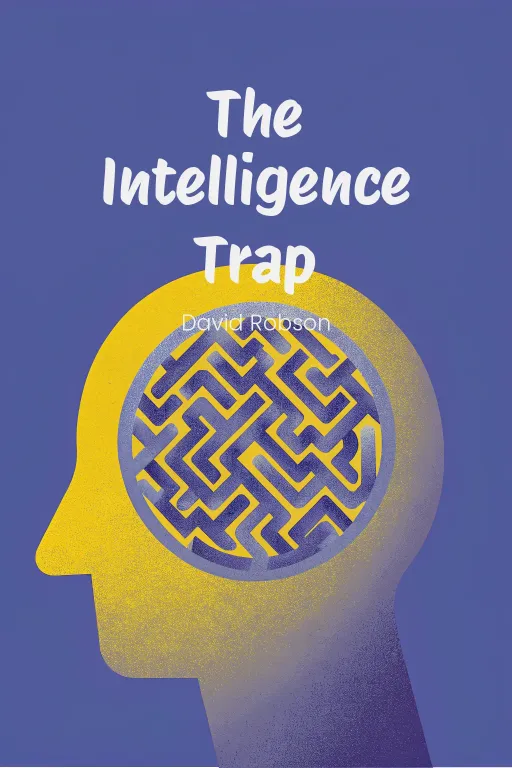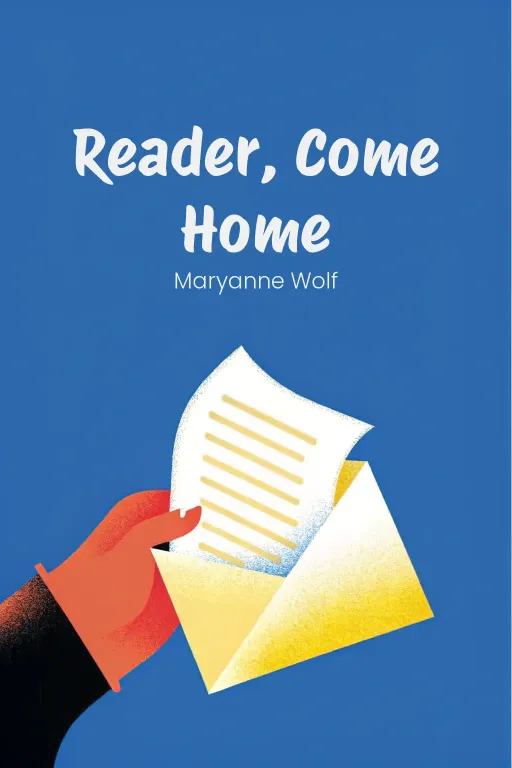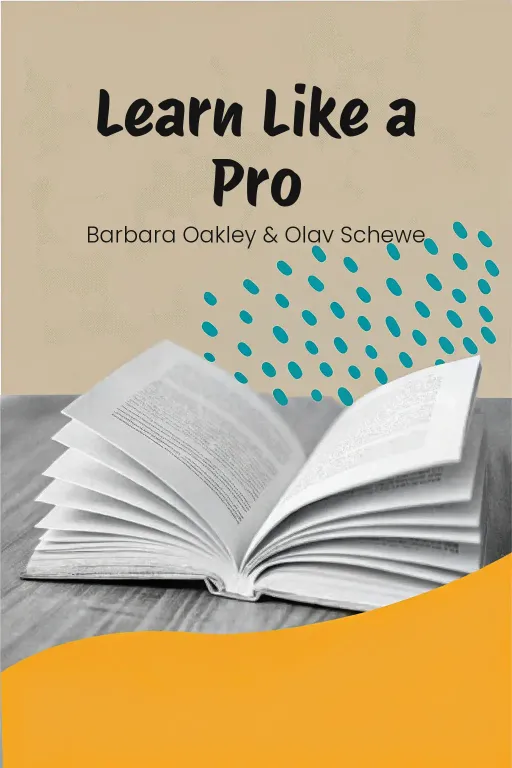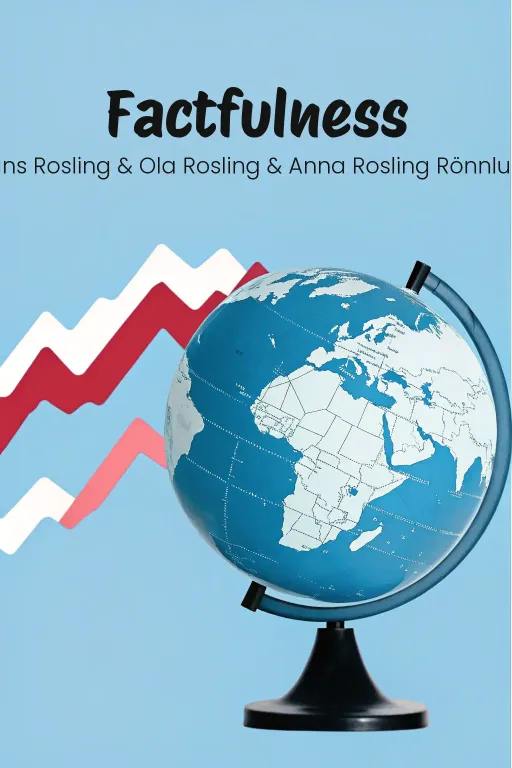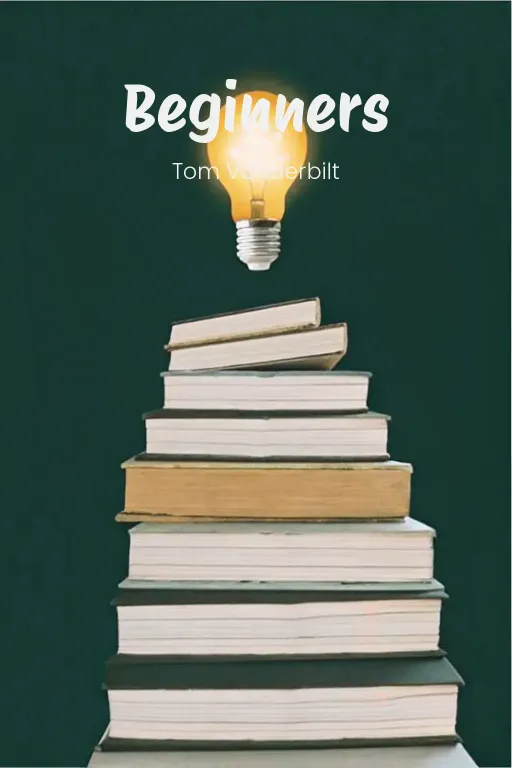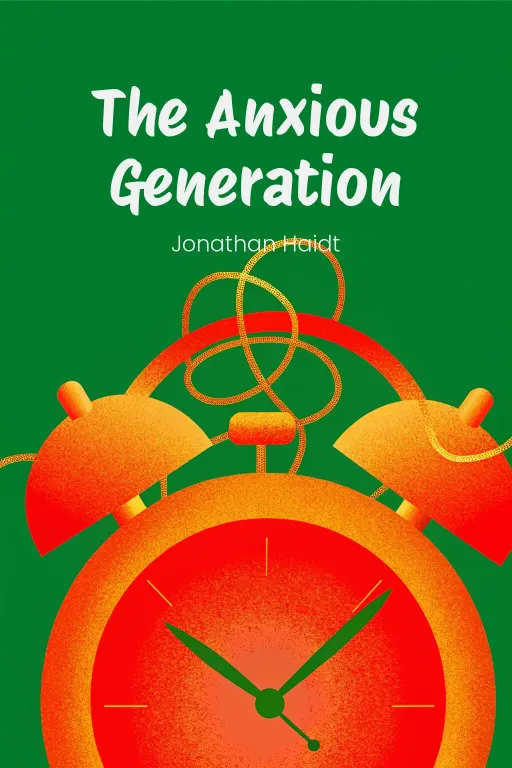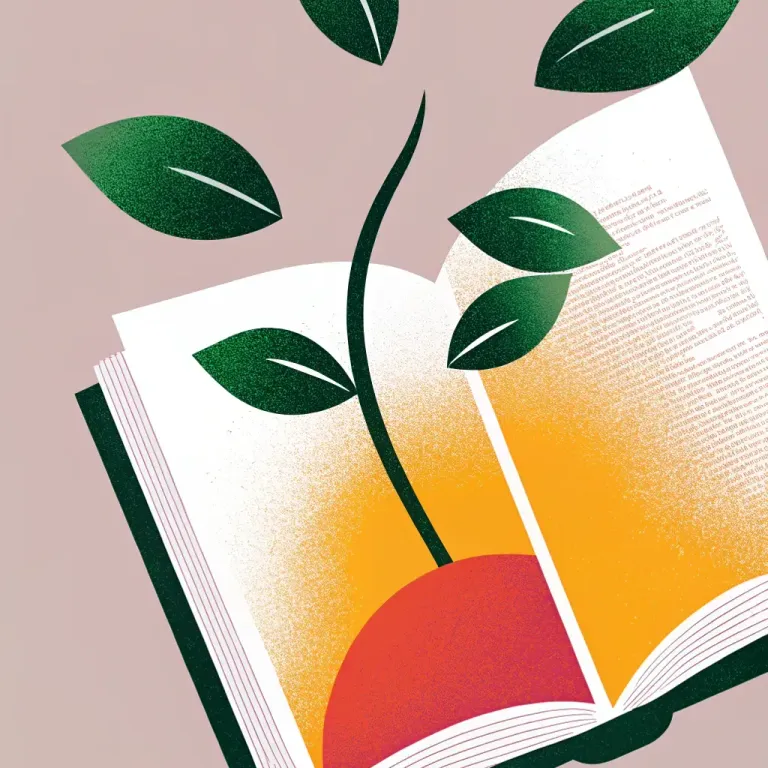
Find Your Magic: The Best Place to Begin
Podcast by The Mindful Minute with Autumn and Rachel
The Joy and Transformative Power of Lifelong Learning
Find Your Magic: The Best Place to Begin
Part 1
Autumn: Hey everyone, welcome! Today we're talking about something we all go through, but rarely think about: being a beginner. Remember the last time you tried something completely new? Was it exciting, frustrating, maybe a little of both? Hang onto that feeling, because we're diving deep into the art of embracing the beginner's mindset. Rachel: Exactly, Autumn. Let's face it, most of us avoid that “I have absolutely no clue what I'm doing” stage like the plague. But what if embracing that feeling is actually where the real magic happens? Autumn: That's basically the idea behind Tom Vanderbilt's book, Beginners: The Joy and Transformative Power of Lifelong Learning. He takes us along on his personal adventures—from trying to surf in Costa Rica to joining a choir—while exploring the science and heart behind being a beginner. His journey reminds us that pushing past our comfort zone not only sparks joy, but it also changes how we relate to the world and the people around us. Rachel: Right, so we're going to unpack that into three key takeaways today. First, the beginner's mindset itself. We'll talk about how humility, that willingness to be a novice, and curiosity unlock personal growth, even when you're, say, struggling to not wipe out on a wave. Autumn: Then we’ll get into the adult learning journey. We’ll explore how learning as an adult breaks down stereotypes—yes, adults “really” can learn as much as kids, probably even more! And we'll discuss why picking up new skills can feel like discovering a whole new side to yourself. Rachel: And finally, let's get practical. How do we actually apply this to our lives? How can small victories and, even more importantly, simple curiosities enrich everything from our careers to our relationships? Autumn: Yeah, so if you've ever questioned why all the effort—failing, learning, trying again—is worth it, or if you're just curious about what it's like to learn something totally new later in life, consider this episode your guide. Rachel: So, whether you're a lifelong learner or you're too nervous to even think about signing up for that pottery class, we're here to explore why being a beginner might just be the best place to begin. Let's dive in, shall we?
Embracing the Beginner's Mindset
Part 2
Autumn: Okay, Rachel, so let's dive straight into this beginner's mindset. Really, what it boils down to is being open and curious, right? It's about ditching that pressure we put on ourselves to be perfect right away and actually enjoying learning for its own sake. Vanderbilt really emphasizes this, especially, you know, with that chess tournament scene. Rachel: Definitely. That bit with Ryan – the eight-year-old chess prodigy and his chocolate milk – it's just gold. I mean, picture this: you stroll into the legendary Marshall Chess Club, ready to, I don't know, unleash your inner Bobby Fischer. And bam! You're getting schooled by a kid. Humbling and hilarious all at once. Autumn: Exactly! And Vanderbilt captures that vulnerability so well there. That little bit of anxiety that creeps in when you're in a totally new environment where you're clearly out of your depth. But here’s the magic – he reframes the whole experience. Losing to Ryan wasn’t a failure; it was all about learning to deal with that discomfort and letting your curiosity take control. What did you think about how he shifts his focus from winning to just being in the moment? Rachel: It’s certainly a bold move, because let's be honest, most adults aren't exactly thrilled to embrace incompetence, are they? We're sort of hardwired to avoid it. But Vanderbilt makes a really good point. Watching Ryan genuinely enjoy playing, his unadulterated joy… it’s like a wake-up call. Adults tend to obsess over the results, don’t they? And here’s this kid, just radiating "live in the moment." Autumn: Right? And it really connects with what Vanderbilt emphasizes: that kids, unlike adults, tend to see mistakes as part of the process. That's such a freeing idea, isn't it? When Ryan wins, Vanderbilt doesn’t just feel defeated. He walks away realizing how much he’s grown because he allowed himself to be vulnerable, to let go of his ego. Rachel: Okay, but let me be a tad skeptical here. It's easy to romanticize "beginner's joy", but aren't we all kind of… taught to avoid failure? I mean, sure, Ryan’s glee, fueled by chocolate milk, is charming. But in real adult life? There's pressure, bills, time constraints. You can’t exactly celebrate every stumble when the stakes are high. Autumn: Totally, Rachel. And you're right, it's not easy to undo that conditioning. But here's where that beginner's mindset becomes truly powerful, I think. It's not about thinking failure is fun, but seeing it as a learning opportunity. Remember Karen Adolph's research at the Infant Action Lab? Babies fall all the time as they are learning to walk, but they don't quit or beat themselves up over it. They adapt, adjust, and keep trying, without all that negativity we adults heap on our own mistakes. Rachel: Point taken. But babies also don't have deadlines or egos on the line. We do. So how can we bridge that gap? How can we be baby-like in our persistence without, you know, throwing a tantrum when things go sideways? Autumn: Good question! Vanderbilt has some thoughts on this. First, it’s about changing how we think about failure. Think about that idea of "productive struggle." Babies don’t start sprinting the first time they try to walk, and beginners don’t win every chess game. Break down goals into steps you can actually achieve and celebrate the small wins. In chess, for example, Vanderbilt began by studying specific moves instead of trying to master everything all at once. Rachel: Right, the micromastery approach – just pick one piece and go from there. I can relate to that. You're not trying to win a Pulitzer on day one of a creative writing class, are you? You're just, what, figuring out the difference between "their," "there," and "they're"? Autumn: Exactly! Breaking things down not only helps you learn but also makes you feel a lot less scared of total failure. And second, we can create environments where it feels safe to experiment. The low-stakes chess tournament was Vanderbilt’s safe space. He wasn’t trying to win some grand title, he was there to learn and connect with people. And that connection, by the way, is another great thing about the beginner's mindset. Rachel: Absolutely. Because, as Vanderbilt points out, being a beginner opens doors to connecting with others. Even losing to an eight-year-old becomes less embarrassing when you realize it’s a shared thing – one beginner learning from another. He even mentions how grandmasters, no matter how good they are now, all started out making beginner mistakes. It’s a reminder we’re all learning, whether we realize it or not. Autumn: Yes! And that’s why the beginner’s mindset is so powerful. Vanderbilt found that by really embracing his vulnerability, he could connect with others – no matter their age, skill, or background. We all want that connection, but we often miss out on it because we don’t want to be vulnerable and put ourselves in a learner's position. Rachel: Okay, I'll admit, this is all sounding pretty good – the learning, the humility, the connections. But let me throw a dose of reality in here: how do we reconcile this feel-good attitude with, you know, real life? Because as much as I'd love to start each day shouting, "I’m a beginner!" like some kind of mantra, I still have bills to pay. Autumn: That's where intentional practice comes in, Rachel. We’re not talking about changing everything about your life. It’s about fitting the beginner's mindset into everyday moments – like trying a new recipe or exploring a creative hobby on the weekend. A bit of curiosity combined with being okay with messing up isn’t just doable, it’s actually enriching. Think about Vanderbilt’s chess story – it’s not about the final score; it’s about who he became through the whole experience.
Challenges and Rewards of Adult Learning
Part 3
Autumn: So, this groundwork really helps us understand why learning as an adult can be both uniquely tough and, yeah, really rewarding. It's more than just trying to think like a beginner. It's about dealing with the specific things that make adult learning so different. I think we should break down the challenges adults face but also, importantly, the advantages we have. Rachel: Exactly! There's a lot to unpack here. Let's start with the challenges, because, let's be real, being an adult learner isn't all inspirational montages and lightbulb moments. There are stereotypes, fear of failure, and that annoying voice in your head saying, "You're too old for this." Where do you want to start, Autumn? Autumn: Let's dive into societal stereotypes first. Adults are often seen as, you know, too set in their ways or “past their prime” to pick up new skills. It's such a limiting idea, and Vanderbilt tackles this head-on in his writing. Remember Kathy at the surf camp in Costa Rica? She's a perfect example of how these stereotypes play out internally. Rachel: Oh, Kathy's story is a classic. Picture this: you're standing there, staring at the ocean, probably thinking, "Am I about to totally embarrass myself in front of all these people?" It's like every adult's worst social anxiety nightmare, wrapped in a wetsuit. Autumn: Exactly! Kathy said what so many adult learners are thinking: "If I never try, I'll never know." That one sentence is packed with both fear and curiosity. The physical challenge of surfing was definitely real, but the mental struggle was just as big. It wasn't just about riding a wave; it was about battling the fear of failing, of looking silly. Rachel: And that's where I really feel for Kathy, you know? Adults often think they're supposed to already know things before they even try, which is… kind of crazy when you think about it. Like, Vanderbilt with those chess matches—he freaked out because society tells him: "You're an adult. You shouldn't be losing to an eight-year-old sipping chocolate milk." That pressure to perform can really crush you. Autumn: Absolutely. But what's amazing about Kathy, and Vanderbilt too, is that they embraced the discomfort. Kathy might have been super anxious when she started, but with every wipeout, she changed her perspective. The ocean wasn't her enemy; it became her teacher. And slowly, she found joy in the process. Rachel: Okay, but let's not pretend that “process” is easy. Surfing isn't just a “get back up and try again” kind of sport; it's also a “swallow half the Pacific Ocean and bruise every muscle you didn't know you had” kind of sport! How do you think Kathy really pushed through all that? Because, honestly, one face-plant into a wave would be enough for me to call it quits. Autumn: That's a great point. And the answer is really the environment she was in. Kathy had a supportive group around her—other beginners cheering her on, instructors encouraging her. That group dynamic is so important for adult learning. When you're surrounded by people who are also being vulnerable, it's just easier to keep going. Vanderbilt really shows this in his stories, whether it's that surf camp or when he was learning to sing in a choir. Rachel: Ah, yes, the infamous choir! Now, that's an example I can sort of relate to. I mean, I might not want to surf, but singing in a group? There's something strangely… appealing about that idea. Autumn: That's because singing in a choir connects you to something deeply human: connection. Research shows that when people sing together, they actually sync up on a biological level. Oxytocin gets released. That’s that bonding hormone, right? And that creates a real sense of belonging. A choir isn't just a bunch of voices blending together; it's a community built on a shared experience. Rachel: Right, and that makes sense. I remember Vanderbilt talking about that Britpop Choir, where strangers came together, bonded over music, and became like a little family. There's something kind of whimsical but also profound about that. Plus, it proves that adults can learn not just skills but also how to support each other. Autumn: Exactly. And here's the thing: collaborative learning makes the rewards of being a beginner even bigger. It takes away some of the fear of being judged because everyone's in the same boat—or, in Kathy's case, on the same surfboard. Whether it's in choirs, surfing groups, or any beginner space, that personal transformation feels like a group effort. You fail together, you succeed together, and that shared laughter or celebration becomes part of the learning process. Rachel: And wouldn't you say that groups can help take the pressure off? I mean, if Kathy had been learning to surf alone, the pressure might have been too much. But in a group, every wipeout becomes a funny story instead of a personal disaster. That's powerful. Autumn: Absolutely. It also shows how social interaction is important—you know, when shared struggles and triumphs build stronger relationships. Both Kathy's story and the choir examples highlight how group learning boosts not just the brain benefits but also the emotional ones, like feeling less lonely or less anxious. Rachel: Okay, Autumn, I see what you're saying. Stereotypes and fears might hold us back, but adult learners also have tools in their toolbox—like community and, uh, what was it, neuroplasticity. Speaking of which, let's talk brainpower. You mentioned earlier that adults aren't as stuck in their ways as people think. Autumn: That's right, Rachel. The idea of neuroplasticity totally changes that myth that older brains can't learn as well as younger ones. It's the brain's ability to change and adapt with practice, and it's a big reason why adult learning works so well. Rachel: Wait, so you're telling me my brain can still rewire itself at my age? That feels… both hopeful and slightly scary. Autumn: It's hopeful, Rachel! Adult learners can use neuroplasticity to learn totally new skills, just like Kathy did on the surfboard. At first, her body wasn't used to the movements; her brain didn't have that “surfing map,” you know? But by doing it over and over and getting feedback, her brain slowly created new pathways, allowing her to balance, paddle, and eventually ride the waves. Rachel: Sounds like a lot of trial and error. Basically, she built muscle memory for falling gracefully, right? Autumn: Well, yes. But what's cool is that every mistake Kathy made was important to that process. You're constantly changing, getting better, and improving, whether you're learning to sing harmony in a choir or even playing chess. Rachel: Alright, so adults have neuroplasticity, supportive communities, and even some old knowledge to work with. I can admit, Autumn, this whole adult-learner thing has potential. But I still want to know… how do we make this normal in a world that's obsessed with already being the best at everything?
Practical Applications and Lifelong Learning Principles
Part 4
Autumn: So, after getting a handle on how adults learn, we can look at how these ideas apply to specific skills, right? Think practical stuff like learning through curiosity, getting good at little things first, and how all of that builds us up and brings people together. Rachel, let's start with micromastery. How does focusing on small steps change how we learn? Rachel: Micromastery, huh? It's kind of funny how focusing on the small wins, instead of obsessing over the finish line, feels like some kind of groundbreaking idea. Look at Vanderbilt's chess journey, right? He didn’t just jump in thinking he'd beat a grandmaster in a week. Nope, he zeroed in on little pieces of the game – moves, tactics… breaking it all down into tiny, manageable bits. It's like tackling Everest one foothold at a time instead of just staring at the summit and freaking out. Autumn: Exactly! It's all about letting those small wins build momentum. For someone like Vanderbilt, who was facing this huge, complicated game, micromastery made chess feel doable—almost...fun. And it's not just in his head, either. Science backs the idea: when your brain gets good feedback – like mastering a chess tactic – it releases dopamine, which makes learning feel good and keeps you going. Rachel: Right, so instead of getting overwhelmed and thinking, "I’ll never get this," you trick your brain into thinking, "Hey, I can actually do this!" I can see how this works outside of chess too. Think about someone trying to play guitar, they don’t need to shred like Hendrix right away. Just nailing a few chords might be enough to keep them interested. Autumn: Precisely so. Focusing on smaller parts of a larger skill—nailing them—makes everything feel less daunting. Vanderbilt realized that micromastery encourages you to relax and enjoy the ride instead of stressing out about being perfect. It keeps you motivated without burning you out. And, like you said, it goes way beyond chess or the guitar. In the Bahamas, during his SwimQuest adventure, he didn't just dive into open water. He started with the basics, like mastering his strokes and breathing. Rachel: Hold on, let's not skip the touchy-feely stuff here. Learning new things as an adult can trigger some insecurities. Vanderbilt was worried about looking foolish in front of his family during SwimQuest. That's a big deal, isn't it? Feeling like people are judging you, even if they aren't. How does micromastery help with that? Autumn: That’s a great point – shame and the fear of judgment can “really” freeze adult learners. But micromastery helps calm those fears because it lowers the stakes right away. Instead of trying to be amazing all at once, you can focus on small, achievable goals, which feels less exposed and more personal. And that mindset shifts the pressure from performing for others to satisfying your own curiosity. Rachel: And I agree with that, but curiosity doesn’t pay the bills, Autumn. Now, let's say you're trying to learn a new skill at work. Can you “really” just "learn for fun," or only for hobbies like chess and surfing? Autumn: Ah, but that is a very fair question. That’s where curiosity and micromastery become practical. Think about someone who just started a new job, right? Instead of trying to be an expert in a week, they could set small goals, like figuring out one system at a time, or just perfecting a single task. It’s not just more efficient, it’s also empowering too. Getting those little wins at work can build confidence and capability. And these principles aren't limited to hobbies—they apply to any adult who is looking to learn and grow. Rachel: Okay, yeah, that makes sense. And it's not just about career things. One of Vanderbilt's big takeaways here is how it all builds resilience, right? Let's talk about that. Because his SwimQuest story is more than just clear water, it’s about swimming against the current of fear and discomfort. But you know, Patricia “really” impressed me. Here's a woman in her seventies throwing herself into something new. How did she do it? Autumn: Patricia's a great example of resilience. Despite being older—and having any excuse not to even try—she “really” embraced new challenges, head-on. She didn't start SwimQuest thinking, "I'm gonna be the best swimmer here." No, she was focused on participating and “really” leaned on her own determination and the support of the group. She kept practicing her strokes, asking questions, and celebrating, small wins, day by day. Remember when the instructors gave her the Golden Swim Cap? It wasn’t for skill, but for sticking with it. That’s “really” what learning is all about: showing that resilience isn't about avoiding hard things; it's about working your way through them, together. Rachel: So, Patricia’s persistence inspired those around her, and what Vanderbilt’s SwimQuest group “really” experienced was shared momentum. Messing up publicly—flubbing strokes, struggling with breathing—then laughing about it together, that turned personal resilience into a group thing. Autumn: Right. That’s the great thing about group learning—it multiplies resilience. When you share your struggles and your encouragement, it makes it seem less isolating. In those moments, learners realize that learning and growth isn’t just personal; it’s interconnected. Rachel: So, Patricia's story is about resilience and perseverance spreading to others, like ripples in the water. But let’s talk about something else Vanderbilt looks at: our sense of self, our identity. He talks about how trying new things changed how he saw himself. So, how does learning driven by curiosity change our self-perception? Autumn: It’s a total shift, Rachel. Vanderbilt explains how learning to swim or sing didn't just teach him skills; it challenged these deeply-held beliefs about what he thought he could do. For a long time, he just assumed he couldn't swim or sing. Taking on these new challenges, pushed him to rethink those ideas. He realized that these "I can't" labels weren't facts; they were just stories he’d been telling himself. By putting himself in beginner roles, he unlocked these new parts of himself —like his ability to be okay with being imperfect, and to enjoy just getting a little bit better. Rachel: Right, and the choir stories “really” drive this home. Singing is more than just skill, it also has to do with self-expression. Vanderbilt points out that just being part of a group, harmonizing with others, “really” boosted his confidence, right? I mean, it’s almost poetic how one voice, blending with others, can makes you feel more individual and more connected at the same time. Autumn: It’s deeply poetic—and biological, too. Singing in a choir releases oxytocin, which encourages emotional bonding. It's not just about skill; it’s about personal and shared transformation too. For Vanderbilt, being in choirs let him see himself not just as a learner but as a contributor as well. It's just the same as Patricia or Kathy on that surfboard. Their learning wasn’t just for themselves—it became part of a bigger story, which changed how they saw themselves way more than they expected. Rachel: Maybe that’s the big takeaway here: that learning isn’t some lonely, isolated thing. It shapes who we are, makes our relationships stronger, and reminds us that being part of a community helps us grow even more.
Conclusion
Part 5
Autumn: Okay, so to recap, we really dove into what it means to be a beginner, right? We talked about the beauty, the complexity, the whole deal. And that beginner’s mindset—how being humble, curious, even a little vulnerable, can fuel serious personal growth. Rachel: Right, and we didn’t dodge the tough stuff about learning as adults. You know, the stereotypes, the fear of screwing up. But we also highlighted our advantages: that our brains are still moldable, and the power of finding people who’ve got your back. Autumn: Exactly! Then we got into micromastery and this idea of curiosity-driven learning. Small steps, right? Making growth something you can actually stick with. Whether it’s surfing, chess, or even shaking things up at work. And we saw how it all builds resilience, changes how you see yourself, and creates real connections with people. Rachel: And that last part, I think, is key. Learning isn’t just about adding tools to your toolbox. It’s about changing how you see yourself and deepening how you connect with other people. Autumn: Precisely. So, here’s something to think about: What if you went into your next challenge not dreading failure, but with that wide-eyed curiosity of that kid crushing it at chess, or the grit of Patricia at 70? Rachel: Because at the end of the day, whether you’re trying to stand up on a surfboard or belting out tunes in a choir, being a beginner isn’t just the starting point. It’s where the real magic happens. Autumn: So, until our next episode, keep learning, keep growing, alright? Rachel: And hey, maybe even enjoy the occasional face-plant along the way. It’s all part of it! See ya!


